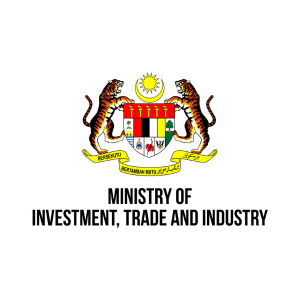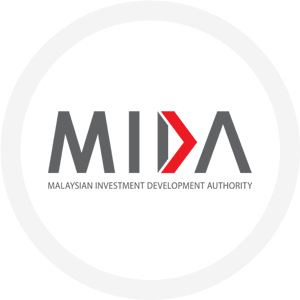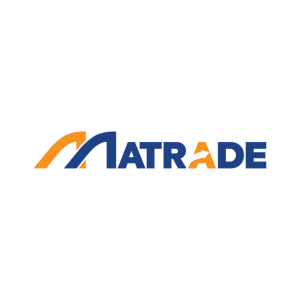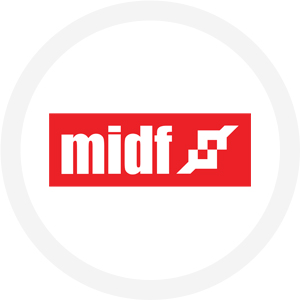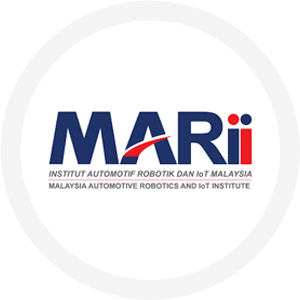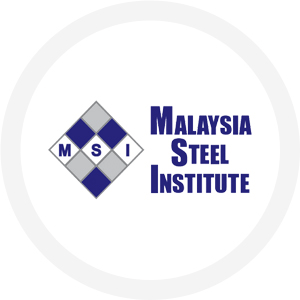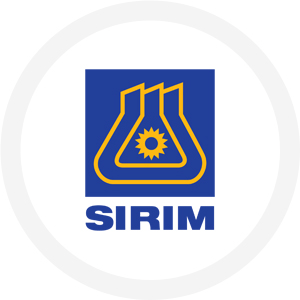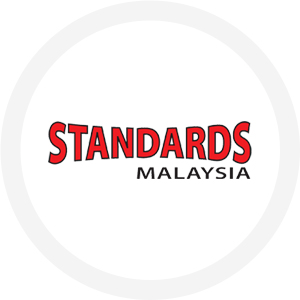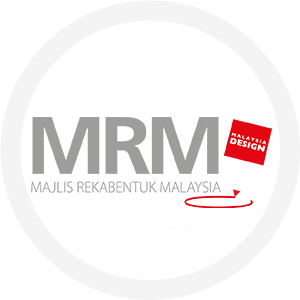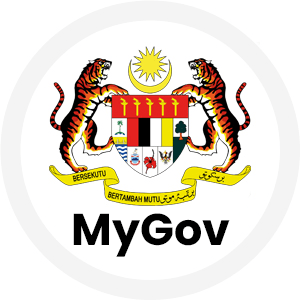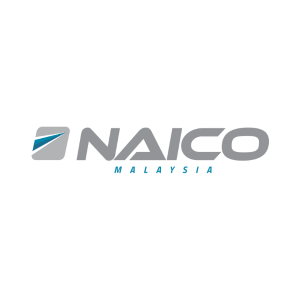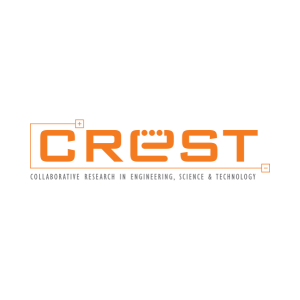The Essentials of Energy Performance Contracting (EPC) for Energy Efficiency Programs
Implementing Effective and Efficient Energy Solutions"
Energy Performance Contracting (EPC) is pivotal in driving energy efficiency and sustainability initiatives across diverse sectors.
This training equips participants with comprehensive knowledge and practical skills essential for successful EPC project implementation. Dr. Hassan Mohamed, Senior Lecturer, Institute of Sustainable Energy, UNITEN provides strategic insights for participants, ensuring a robust way forward.
Objectives:
a. Understanding the Need and Importance of EPC:
- Appreciate how EPC promotes energy efficiency and sustainability in infrastructure and operations.
b. Differentiating EPC Models:
- Identify and apply models like Guaranteed Savings and Shared Savings to suit various project contexts.
c. Analyzing EPC Templates:
- Evaluate template components and structures for optimal project alignment and regulatory compliance.
d. Mastering the EPC Process:
- Navigate project stages from energy audits to performance guarantees with precision and efficiency.
Way Forward:
a. Implementation Skills:
- Apply EPC insights to drive energy efficiency projects to stakeholders and industry.
b. Continuous Learning:
- Engage in ongoing education and skill development to stay current with EPC advancements.
c. Networking Opportunities:
- Connect with industry peers to share best practices and collaborate on future projects.
Conclusion:
Dr. Hassan’s guidance ensures MPC's participants are equipped to navigate the evolving landscape of EPC. By fostering continuous learning, practical application, and collaborative efforts, this program empowers stakeholders to achieve significant energy efficiency gains and contribute to sustainable development goals effectively.
Attendees:
1. Energy Efficiency Unit
2. COBEPN
3. TPN
4. MEPN
5. EEPN
6. Digital
7. PSPN
8. CPN
9. BTI Unit
#MemacuProduktivitiNegara
#MPCPRODUCTIVITY
#MPC
Quick Share Links
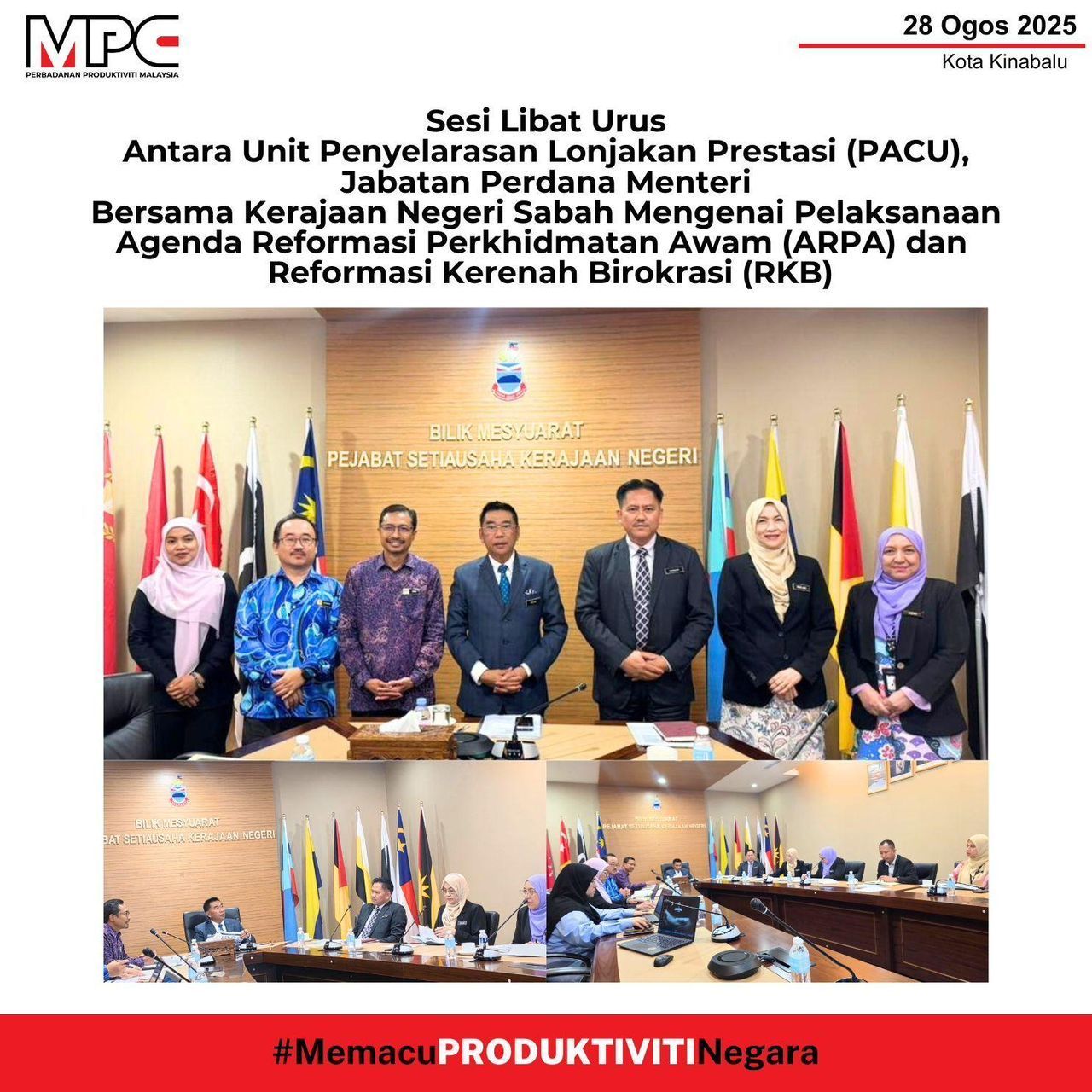
Objektif utama sesi ini adalah untuk menyampaikan Agenda Reformasi Perkhidmatan Awam (ARPA) kepada Kerajaan Negeri Sabah sebagai usaha menyelaras hala tuju dan pemahaman berkaitan pelaksanaan projek Reformasi Kerenah Birokrasi (RKB). ARPA secara keseluruhannya bertujuan memperkukuh keberkesanan penyampaian perkhidmatan awam melalui pemodenan sistem, pengurangan kerenah birokrasi, peningkatan kecekapan tadbir urus, serta mewujudkan budaya kerja berorientasikan hasil dan berteraskan rakyat. Sesi libat urus ini telah dipengerusikan oleh YB Datuk Seri Panglima Sr. Haji Safar bin Untong, JP, Setiausaha Kerajaan Negeri Sabah. Ia turut merangkumi perbincangan mendalam mengenai kemajuan pelaksanaan projek uji kaji RKB di Sabah, di mana PACU secara prinsipnya menyokong penuh pelaksanaan projek tersebut. Dalam sesi ini, PACU turut menekankan kepentingan bagi semua data dan dapatan daripada pelaksanaan ini untuk direkod serta dilaporkan secara sistematik. Laporan-laporan tersebut dilihat amat penting untuk dijadikan rujukan dalam menilai keberkesanan intervensi reformasi, di samping menyediakan asas kukuh bagi pembentangan kepada pihak berkepentingan di peringkat tertinggi. Pendekatan ini dijangka dapat mempercepat transformasi perkhidmatan awam negeri Sabah agar lebih responsif, telus, dan berfokus kepada kesejahteraan rakyat.
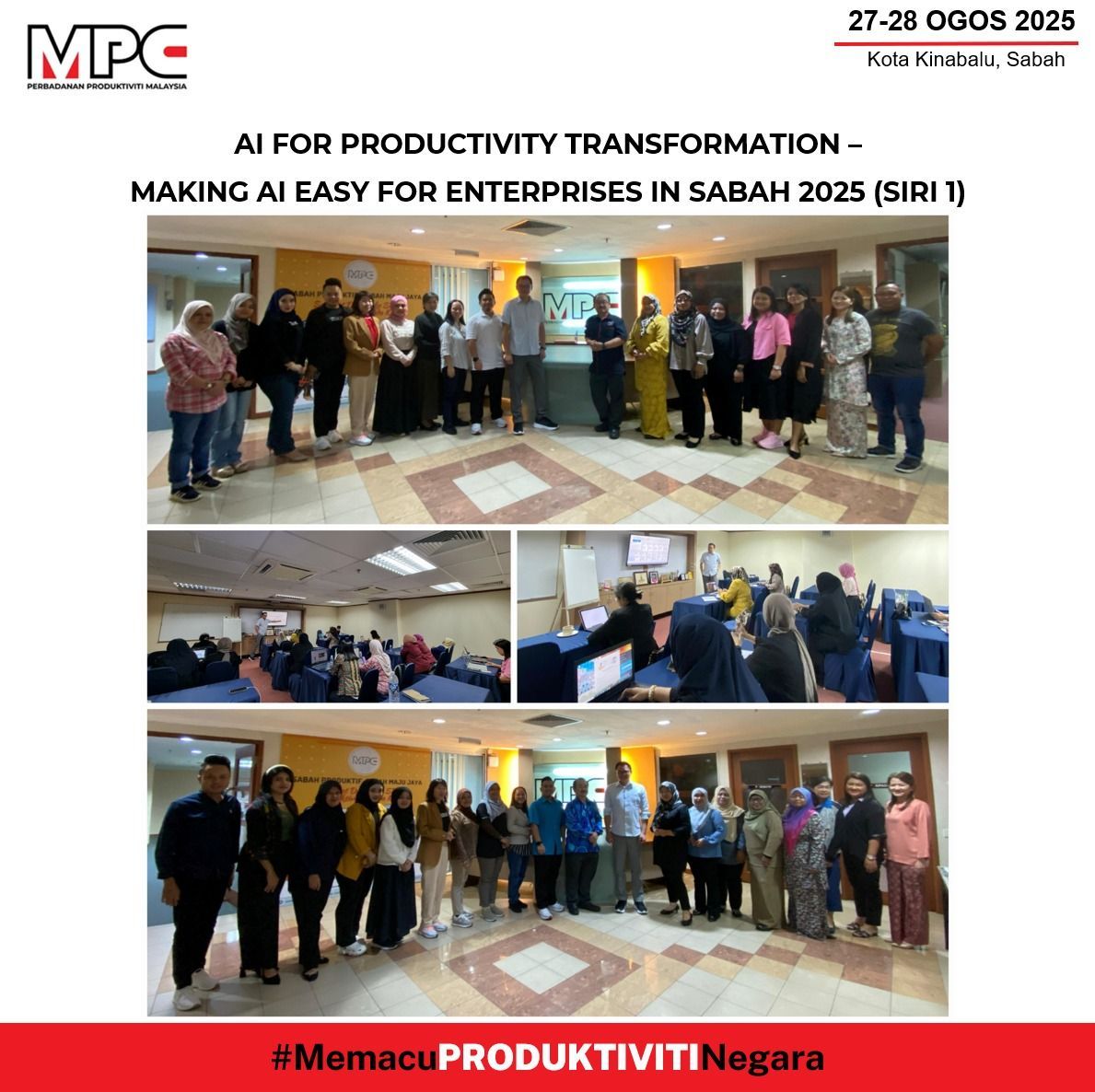
MPC Wilayah Sabah telah berjaya menganjurkan siri pertama program AI for Productivity Transformation – Making AI Easy for Enterprises in Sabah 2025 pada 27–28 Ogos 2025 di MPC Wilayah Sabah. Seramai 17 usahawan telah mengambil bahagian dalam sesi dua hari ini yang bertujuan memperkenalkan penggunaan teknologi Kecerdasan Buatan (AI) untuk memperkukuh daya saing dan produktiviti perniagaan. Antara hasil dan pengisian utama program ini termasuk: • Penghasilan rancangan perniagaan lengkap menggunakan aplikasi AI seperti Gemini, ChatGPT dan Notion. • Penyediaan penyata kewangan, unjuran aliran tunai, analisis kesihatan syarikat secara automasi dan pemasaran media sosial. • Kajian pasaran, pesaing dan pemahaman pelanggan menggunakan data berasaskan AI. • Pembangunan identiti jenama dengan rekaan poster, logo dan bahan promosi tanpa memerlukan pereka grafik. Peserta melaporkan impak positif hasil penggunaan A.I. dalam organisasi mereka termasuk penjimatan masa, peningkatan jualan, pengurangan kos dan kesilapan serta kepuasan pelanggan dan kecekapan membuat keputusan yang lebih tinggi. Peserta kini lebih bersedia mengaplikasikan teknologi AI untuk merancang, mengurus dan memasarkan perniagaan mereka secara lebih cekap dan berkesan, sekaligus menyumbang kepada pertumbuhan ekonomi Sabah. #SabahProduktifSabahMajuJaya
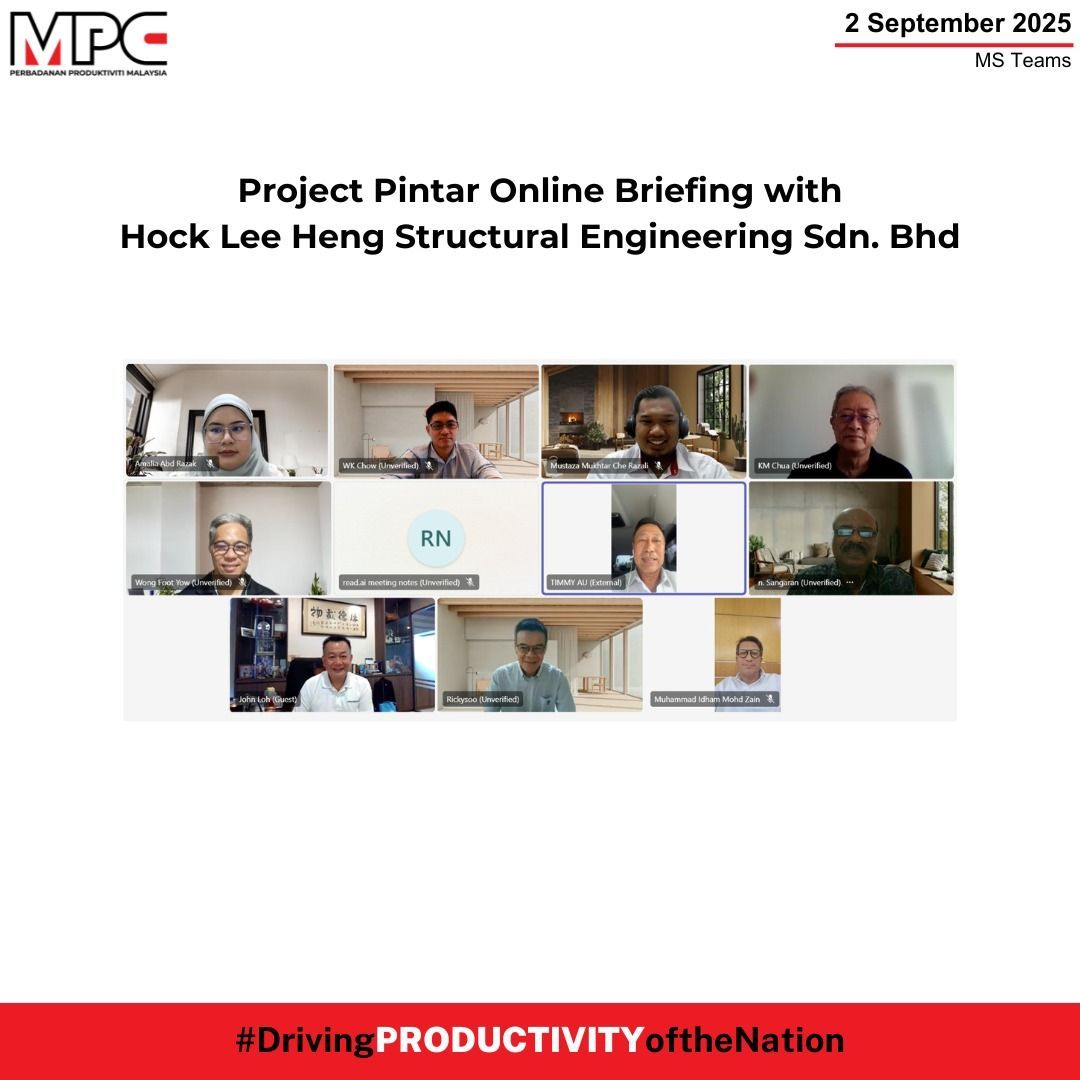
MEPN conducted an online briefing with Hock Lee Heng Structural Engineering Sdn. Bhd. as part of the ongoing Project Pintar initiatives. The session served to introduce the objectives and framework of Project Pintar, while engaging the company in discussions on potential productivity improvement strategies tailored to their operations. This engagement reflects MEPN’s commitment to fostering collaboration with industry players in driving productivity growth and operational excellence within the machinery and equipment (M&E) ecosystem
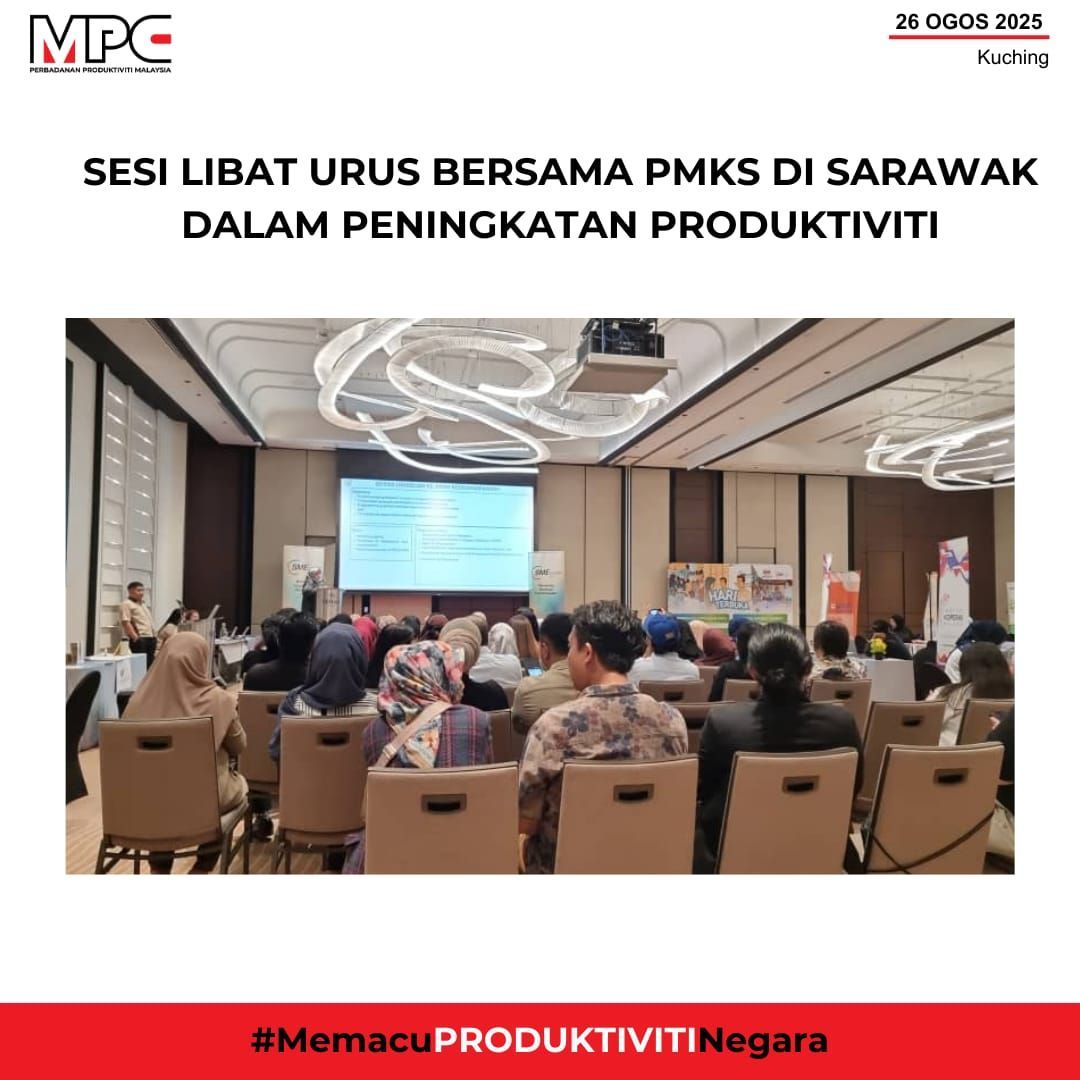
Sesi yang melibatkan hampir 170 peserta daripada PMKS ini membuka peluang untuk meningkatkan kesedaran dan pendedahan mengenai penggunaan teknologi, seperti Kecerdasan Buatan (AI), dalam mentransformasikan operasi perniagaan. Platform interaktif ini turut membolehkan PMKS mengetahui dengan lebih lanjut mengenai program-program MPC seperti AI for Productivity Transformation Programme dan ezBE (Business Excellence Assessment). #SarawakProduktif #MemacuProduktivitiNegara
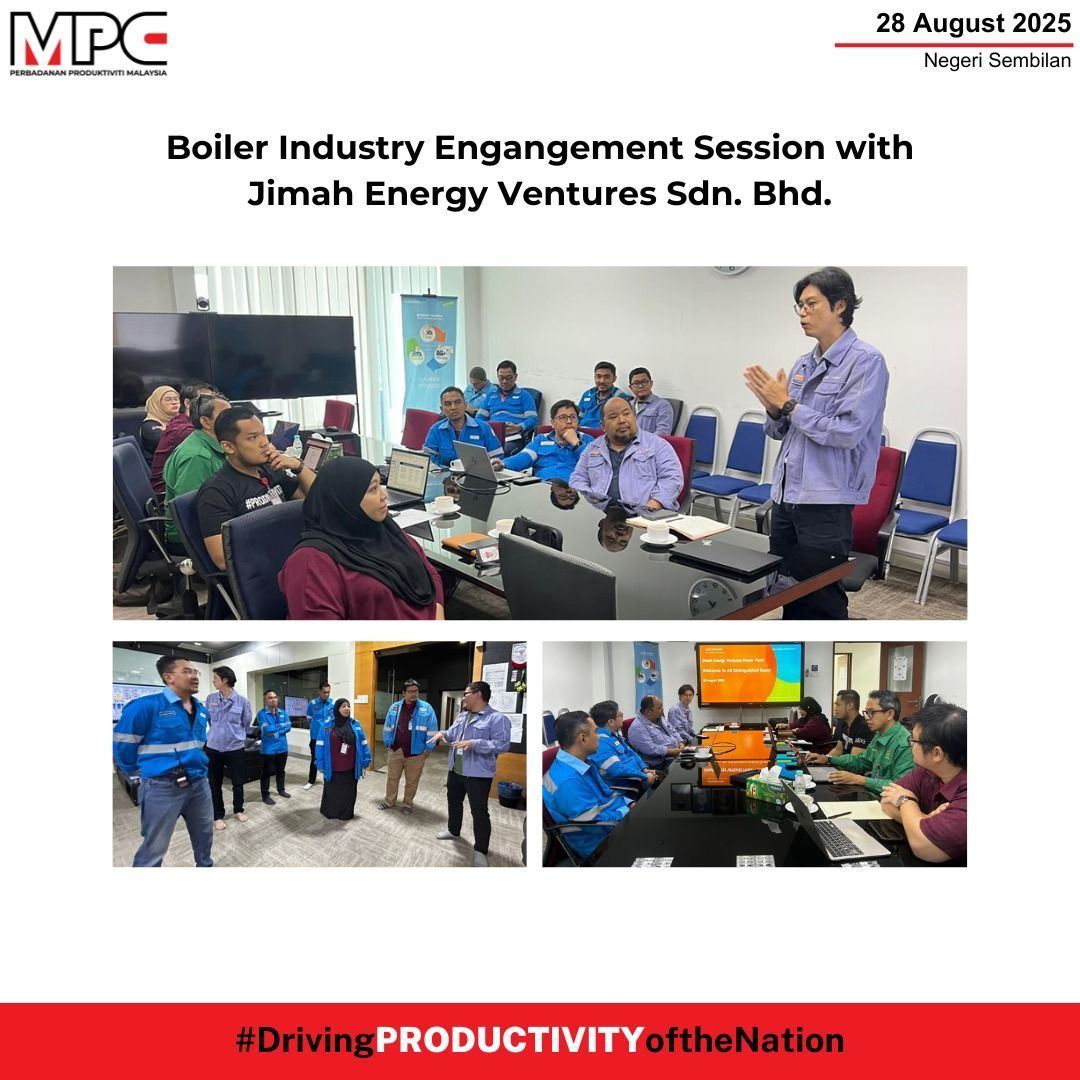
MEPN held an industry engagement session with Jimah Energy Ventures Sdn Bhd on 28 August 2025. The session explored the working nature of boiler operations and the company’s journey in adopting digital technologies to improve productivity, safety, and efficiency. Discussions focused on operational processes, integration of automation, remote monitoring, predictive maintenance, and potential future applications of unmanned boiler operations. Insights from the session will guide the development of an industry-level initiative aimed at advancing productivity and operational excellence across Malaysia’s boiler industry, benefiting both large corporations and SMEs.
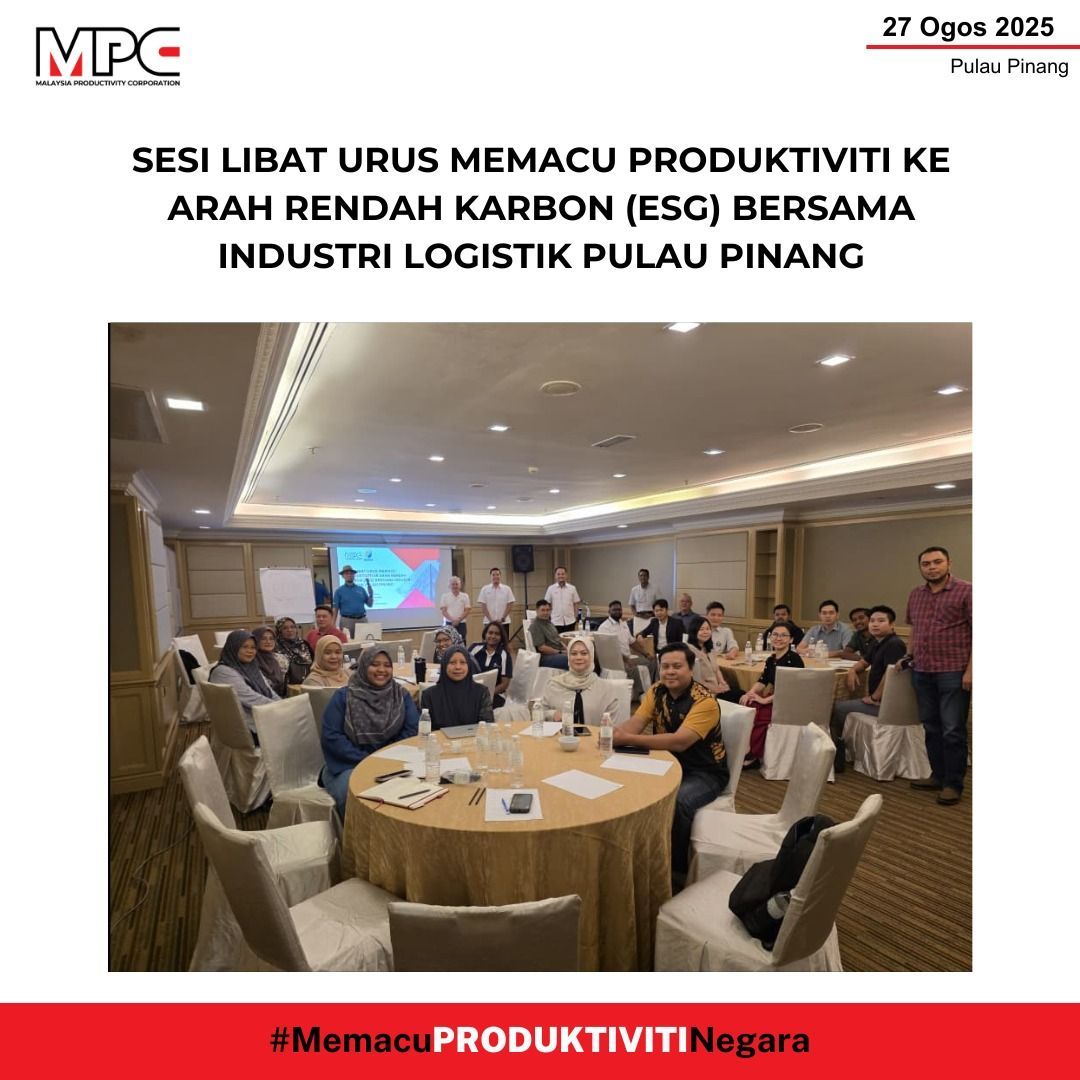
Perbadanan Produktiviti Malaysia (MPC) melalui Nexus Produktiviti Logistik (LPN) telah menganjurkan “Sesi Libat Urus Memacu Produktiviti ke Arah Rendah Karbon (ESG) bersama Industri Logistik Pulau Pinang” yang dihadiri oleh wakil persatuan serta 21 syarikat logistik dengan jumlah penyertaan seramai 25 orang. Sesi ini bertujuan meningkatkan kesedaran industri logistik terhadap kepentingan pelaksanaan amalan rendah karbon selaras dengan prinsip ESG, mendapatkan pandangan, isu dan cadangan bagi memperkukuh daya saing logistik Pulau Pinang serta merangka langkah strategik dalam usaha mengurangkan jejak pelepasan karbon, mengurangkan masa menunggu kenderaan dan menyokong kelestarian alam. Sesi telah membincangkan kaedah pelaksanaan kepada pendekatan tiga fasa iaitu "Gap Analysis & Data Collection", "Proof of Concept Green Logistics" dan "Scale & Incentives" dengan sasaran penglibatan sekurangnya 10 syarikat dari sesi pertama ini. Selain itu, kolaborasi antara pihak kerajaan, industri dan technology providers dilihat penting dalam menjayakan agenda initiatif dirancang. LPN akan terus mendapatkan maklumbalas syarikat berkaitan penggunaan bahan api dan penjejakan pelepasan karbon sebagai data asas penting. Secara keseluruhan, sesi libat urus ini merangka pelaksanaan ke arah logistik rendah karbon di samping memperkukuh kerjasama strategik antara semua pihak berkepentingan
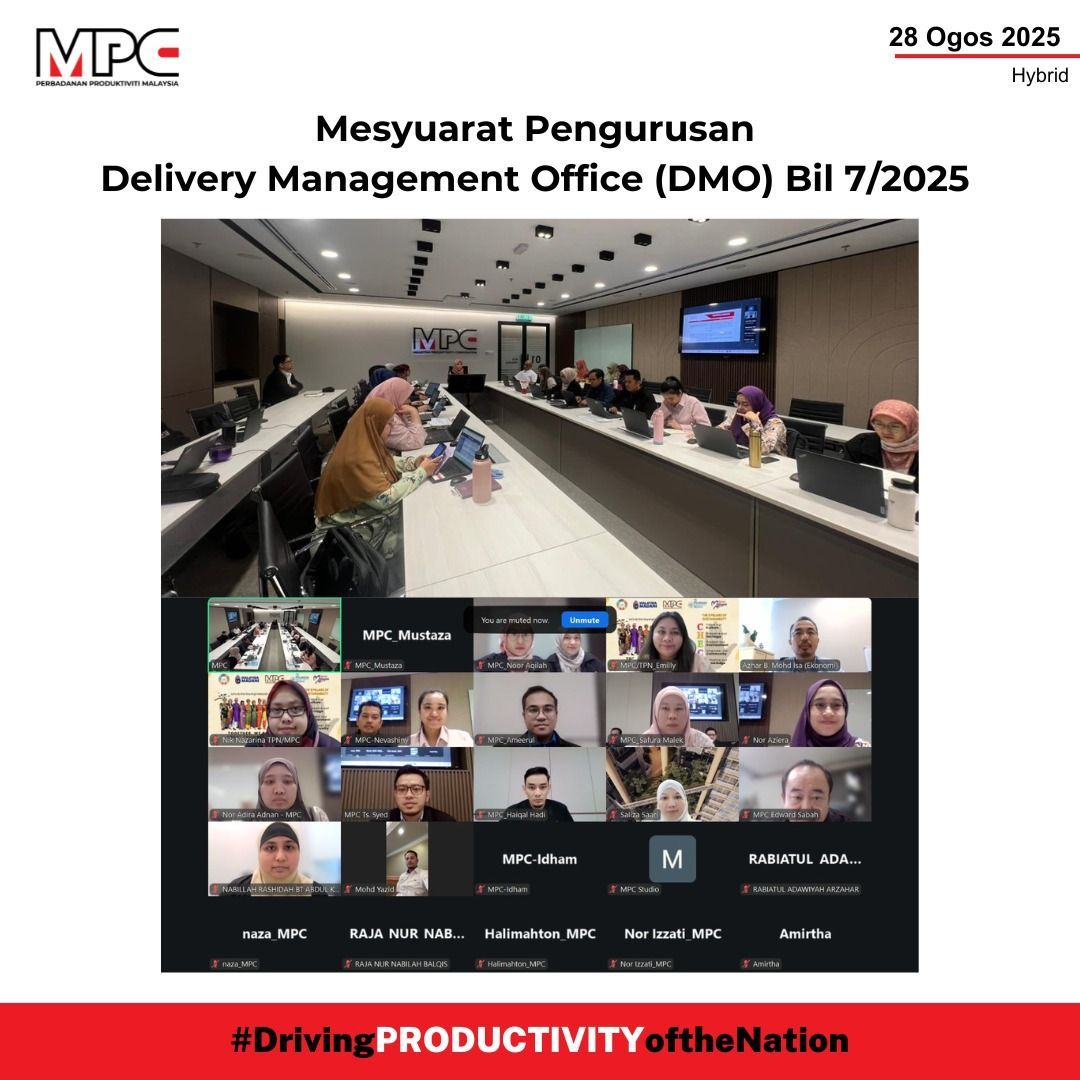
Mesyuarat Pengurusan Delivery Management Office (DMO) Bil. 7/2025 telah diadakan pada 27 Ogos 2025. Mesyuarat telah dipengerusikan oleh YBrs. Dr. Mazrina Mohamed Ibramsah, Timbalan Ketua Pengarah MPC. Turut hadir adalah pegawai-pegawai kanan dari Kementerian Pelaburan, Perdagangan dan Industri (MITI), Kementerian Ekonomi (KE), Agensi-agensi berkaitan serta MPC Ibu Pejabat dan Wilayah. YBrs Dr. Mazrina dalam ucapan alu-aluan beliau menerangkan peranan MPC dalam menjayakan aspirasi RMK-13 yang memfokuskan kepada produktiviti dan daya saing dunia dalam memacu pertumbuhan produktiviti buruh 3.6% setahun serta meletakkan Malaysia dalam kelompok 12 negara paling berdaya saing dunia menjelang tahun 2030 Dua Nexus Produktiviti telah membuat pembentangan masing-masing yang bertajuk MPC as a Catalyst for the Productivity Ecosystem and Chemical Industry Safety through DGSA Certification Programme yang merupakan satu inisiatif di bawah Chemical Productivity Nexus (CPN) dan dibentangkan oleh YBrs. Puan Saliza Saari, Pengarah Bahagian Pengurusan Moden & Teknologi serta Program Peningkatan Produktiviti Melalui Kecerdasan Buatan (AI) oleh Retail & Food & Beverages Productivity Nexus (RFBPN) yang dibentangkan oleh YBrs. Dr. Halimahton Sa’diah Let, Pengarah Bahagian Pengurusan Moden & Teknologi. Pembentangan pertama merujuk kepada peranan MPC sebagai pemangkin ekosistem produktiviti dan keselamatan industri kimia melalui Program Pensijilan DGSA (Dangerous Goods Safety Advisor). MPC melalui program ini bertindak sebagai pemangkin ekosistem produktiviti dan keselamatan industri kimia dengan mengukuhkan pematuhan kepada standard antarabangsa, melahirkan profesional bertauliah tempatan, mengurangkan kos latihan, serta meningkatkan keselamatan dan produktiviti rantaian bekalan bahan berbahaya. Pembentangan kedua pula menekankan pelaksanaan Program AI Produktiviti bagi subsektor Peruncitan dan Makanan & Minuman untuk meningkatkan kecekapan operasi, memperluas penggunaan teknologi AI, serta melonjakkan produktiviti firma melalui sokongan latihan, bimbingan dalam penghasilan Proof-of-Concept (PoC). Mesyuarat juga memaklumkan mengenai status Mesyuarat Nexus Governing Committee (NGC) yang telah berjaya dan akan dijalankan oleh 14 Nexus Produktiviti bagi suku ketiga tahun 2025.
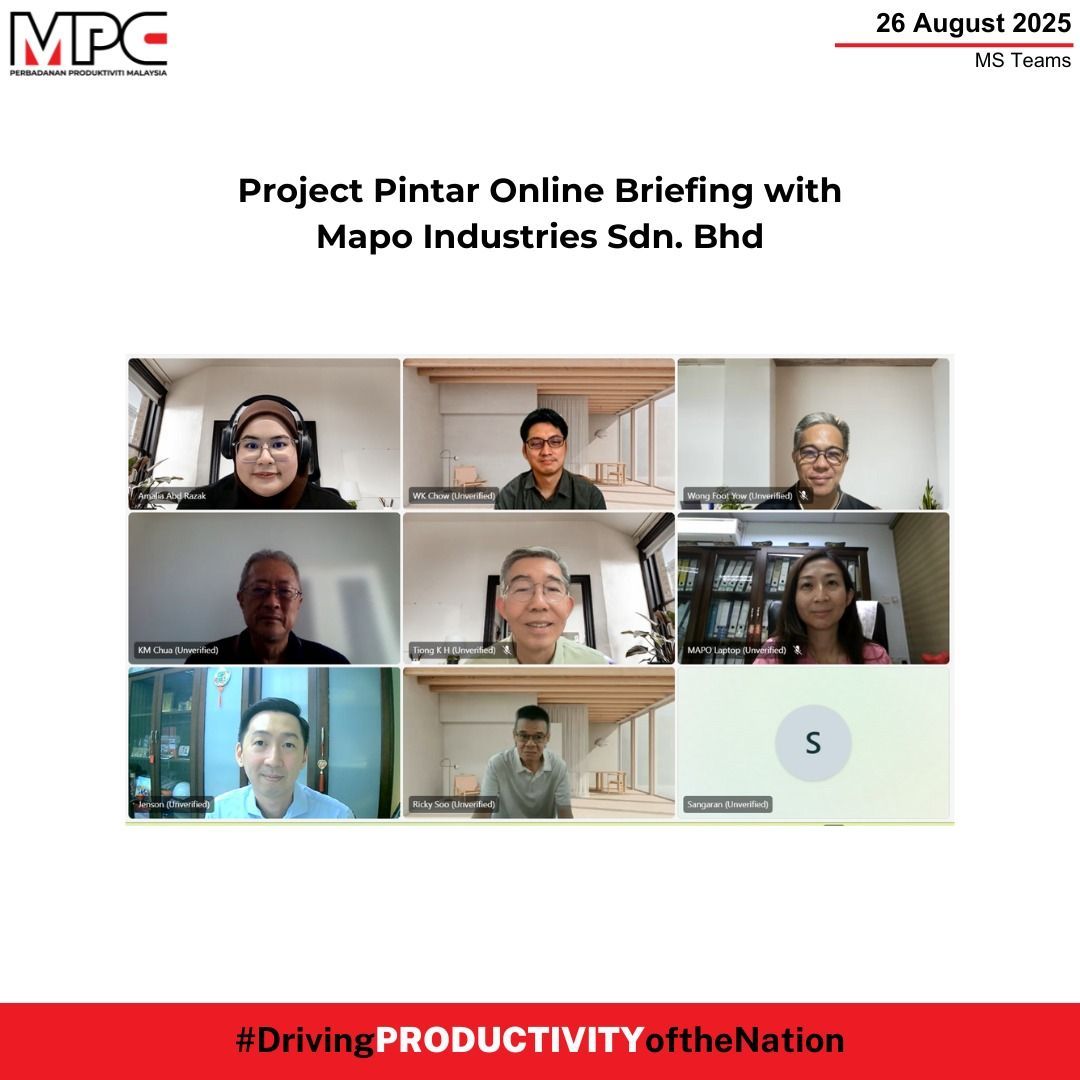
MEPN conducted an online briefing with Mapo Industries Sdn. Bhd. as part of the ongoing Project Pintar initiatives. The session served to introduce the objectives and framework of Project Pintar, while engaging the company in discussions on potential productivity improvement strategies tailored to their operations. This engagement reflects MEPN’s commitment to fostering collaboration with industry players in driving productivity growth and operational excellence within the machinery and equipment (M&E) ecosystem







